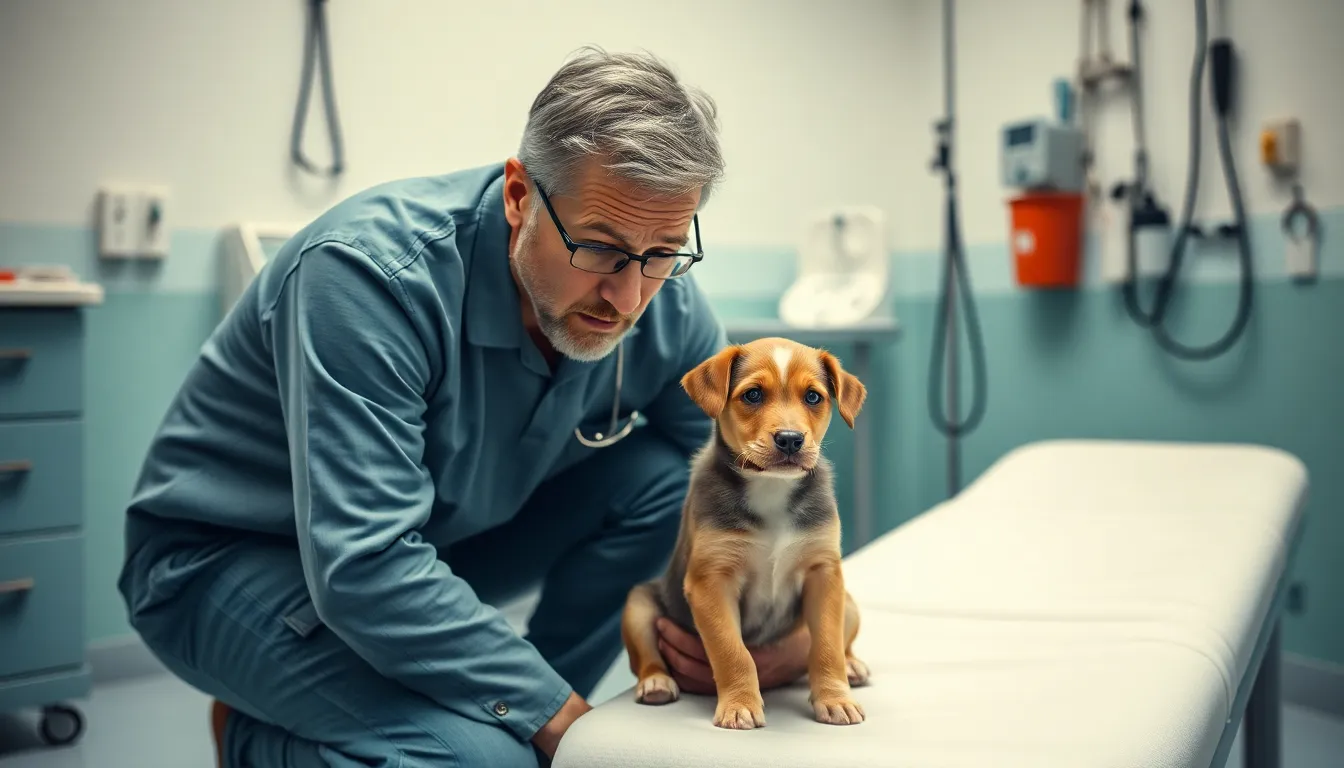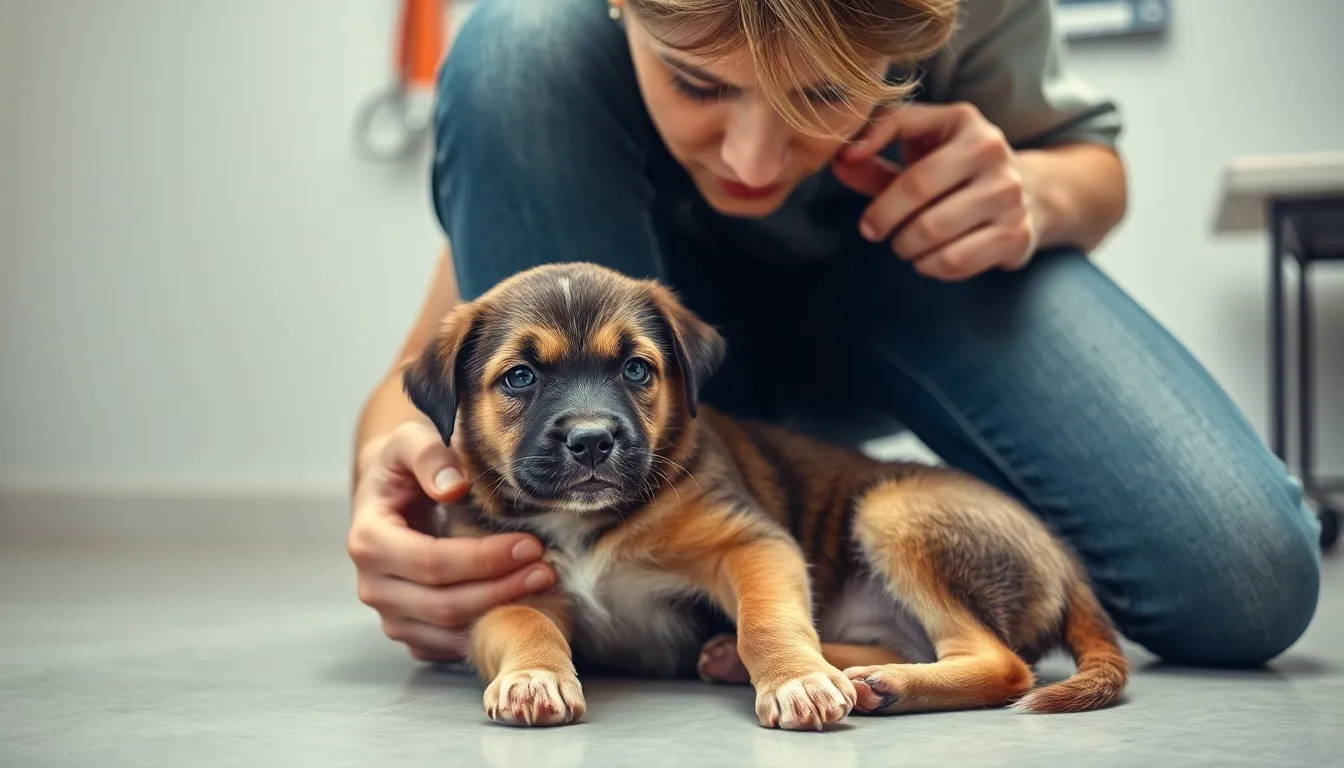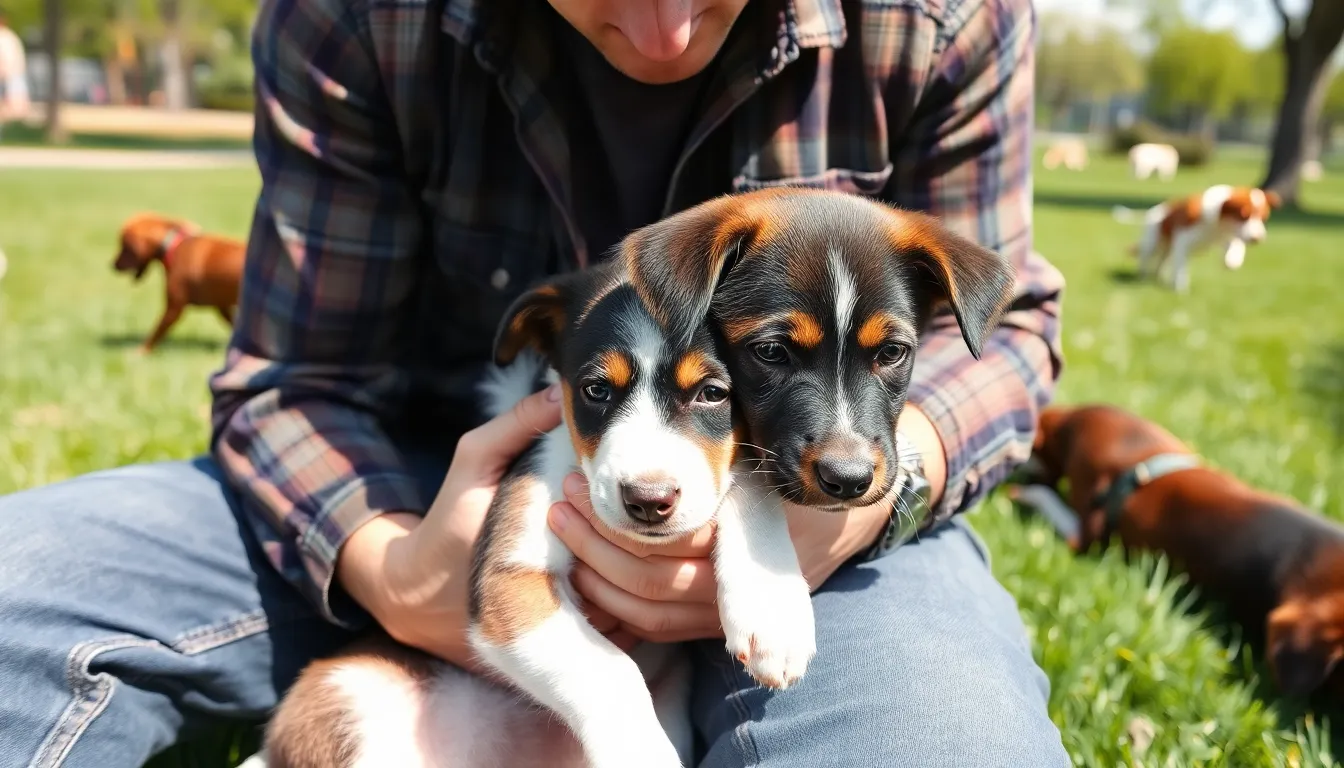Parvovirus might sound like a villain straight out of a sci-fi flick, but it’s a very real concern, especially for dog owners. While your furry friend might be battling this nasty bug, you might wonder if it poses a threat to your own health. Spoiler alert: it’s not contagious to humans!
Imagine being stuck in a dog park, dodging playful pups while worrying about catching a virus. Thankfully, you can relax. Parvo is a canine-only concern, meaning it’s safe to pet that adorable golden retriever without fearing for your life. So grab your favorite dog treat and settle in as we dig deeper into what parvo really is and why you can enjoy your canine companions without a second thought.
Table of Contents
ToggleOverview of Parvovirus
Parvovirus represents a significant health threat primarily for dogs. This virus is highly contagious among canine species, spreading quickly through direct contact or contaminated objects. It usually affects puppies or unvaccinated dogs, leading to severe gastrointestinal issues. Understanding the signs of parvovirus is crucial for dog owners. Symptoms include lethargy, vomiting, diarrhea, and loss of appetite.
Effective vaccination provides substantial protection against parvovirus. Vaccinated dogs demonstrate a lower risk of contracting the virus, allowing for healthier pets and peace of mind for their owners. Environmental surfaces can harbor the virus for lengthy periods, making cleanliness and hygiene essential. Stools from infected dogs can contaminate yards and parks, posing risks for other dogs.
Treatment options for parvovirus focus on supportive care. Veterinary intervention typically includes fluid therapy and medications to manage symptoms. Isolation of infected dogs is advised to prevent spreading. Early detection and prompt veterinary assistance correlate with higher survival rates.
Parvovirus does not infect humans, ensuring dog owners can safely interact with pets. Knowledge of parvovirus effects on dogs assists pet owners in maintaining health and safety for their furry companions. Regular veterinary check-ups and vaccinations remain essential in protecting dogs from this virus.
Understanding Parvovirus Infection


Parvovirus presents serious risks for dogs but poses no threat to humans. Pet owners should be aware of various aspects of this virus.
Symptoms in Affected Animals
Symptoms manifest primarily in puppies or unvaccinated dogs. Severe gastrointestinal issues include lethargy, vomiting, diarrhea, and loss of appetite. Blood in the stool indicates a more advanced stage of the infection, requiring immediate veterinary attention. Dogs may exhibit extreme dehydration due to these symptoms, making timely treatment essential for their recovery. Understanding these signs can help in early detection and timely medical intervention.
Risk Factors for Transmission
Several factors influence the likelihood of parvovirus transmission among canine populations. Direct contact with infected dogs or their feces significantly increases risk. Environments such as dog parks or shelters become hotspots for spread, especially among unvaccinated animals. Puppies under six months are particularly vulnerable due to their underdeveloped immune systems. Maintaining vaccination schedules greatly reduces potential exposure and transmission. Regular cleaning of shared spaces minimizes the virus’s survival on surfaces, further protecting healthy dogs.
Is Parvo Contagious to Humans?
Parvovirus affects dogs predominantly but poses no risk to human health. The virus does not transmit to humans, ensuring pet owners can manage their dog’s health without fear for themselves.
Scientific Evidence
Research confirms that the canine parvovirus does not infect humans. Studies published in veterinary journals maintain no documented cases of human infection linked to parvovirus. Evidence shows the virus specifically targets dogs, particularly those unvaccinated or young. Experts agree that the structure of the virus prevents interaction with human cells, solidifying its species specificity.
Cases of Human Infection
No cases of human infection from parvovirus exist in scientific literature. Instances involving similar viral strains, like those in rodents or primates, do not translate to risk for humans. Public health data consistently indicate that parvovirus remains solely a canine issue. Therefore, pet owners can focus on preventing infection in dogs without worrying about personal health risks.
Preventive Measures
Maintaining the health of pets requires proactive measures. Vaccination plays a crucial role in safeguarding dogs against parvovirus. Puppies typically receive their first vaccine at six to eight weeks of age, with follow-up doses recommended at three to four-week intervals. Proper vaccination schedules, as outlined by veterinarians, effectively reduce the risk of severe disease. Unvaccinated dogs, especially those under six months, face heightened vulnerability. Regular booster shots ensure continued immunity.
Implementing hygiene practices protects pets from infection. Cleaning and disinfecting areas frequented by dogs helps eliminate virus particles. High-contact surfaces, like kennels and feeding areas, should undergo regular sanitation. Owners must always wash their hands after handling dogs or cleaning up feces. Keeping pets away from contaminated environments, such as dog parks with known outbreaks, lowers exposure risks significantly. Adopting these practices enhances the overall well-being of dogs and community health.



